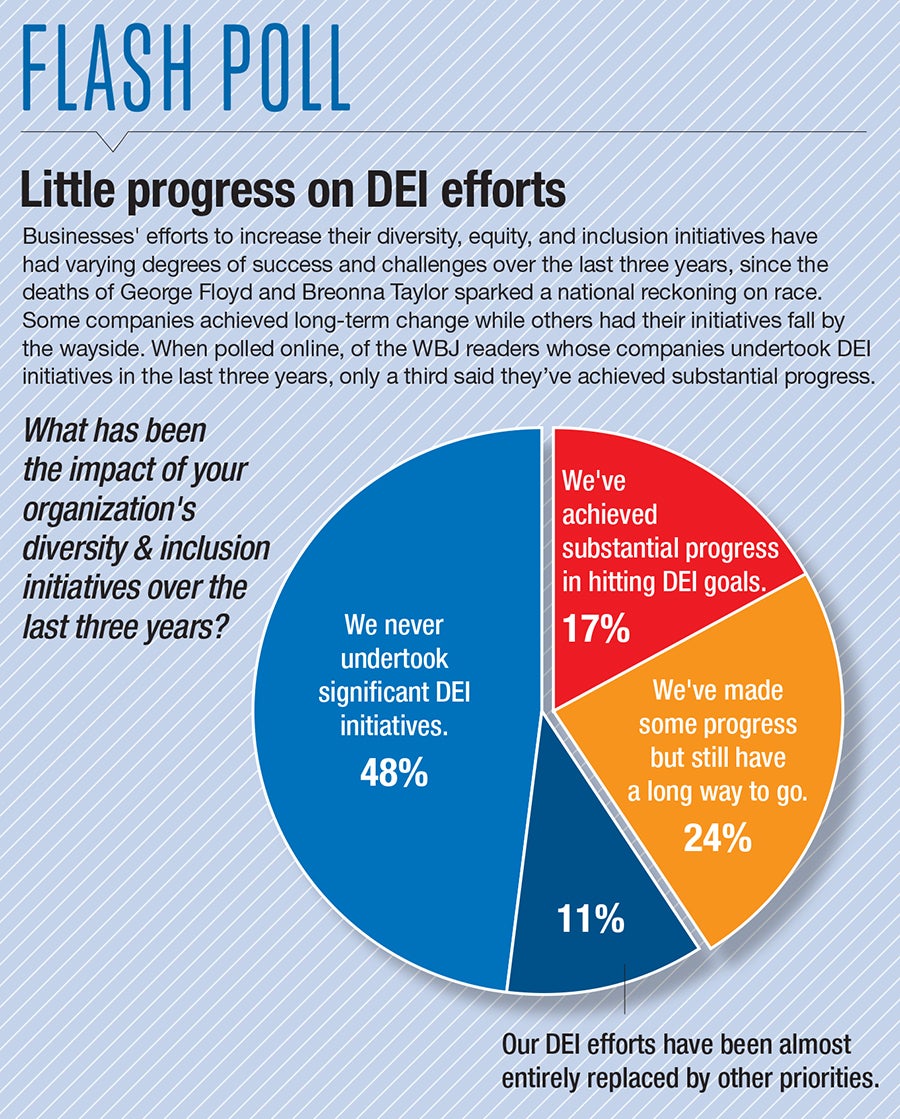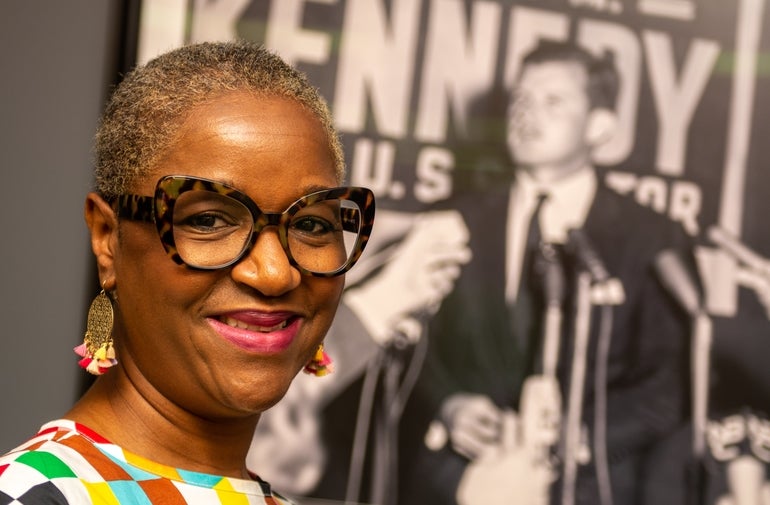Diversity, equity, and inclusion efforts need proper institutional support before change agents can ultimately achieve success.
Get Instant Access to This Article
Subscribe to Worcester Business Journal and get immediate access to all of our subscriber-only content and much more.
- Critical Central Massachusetts business news updated daily.
- Immediate access to all subscriber-only content on our website.
- Bi-weekly print or digital editions of our award-winning publication.
- Special bonus issues like the WBJ Book of Lists.
- Exclusive ticket prize draws for our in-person events.
Click here to purchase a paywall bypass link for this article.
In the three months following the May 2020 police murder of George Floyd, the number of diversity, equity, and inclusion-related job openings surged 55% in the U.S., according to employment website Glassdoor, as businesses scrambled to respond to a national reckoning on race.
Yet, as openings for DEI directors and chief diversity officers sprung up, Edward M. Kennedy Community Health Center in Worcester was not among them.
Instead, the health center first did what DEI professionals say is key to making diversity, equity, and inclusion efforts successful: laying a proper cultural and administrative foundation, so efforts to change a business for the better are far more rewarding and don’t burn out the people trying to lead the change.
Having done that work, Kennedy Community Health in January hired its first DEI director, Sedruola Maruska.
“I have the space and autonomy that I need,” Maruska said.
As the years have unfolded since Floyd’s murder and the spike of business’s DEI initiatives, claims of burnout and lack of support have led to a high rate of turnover among DEI executives, with the average tenure of 1.8 years, according to DEI resource provider Senior Executive.
“It's really impossible for anyone to walk into that role and be successful if the context and organization's environment isn't set up for success,” said Susan Letterman White, managing partner at Letterman White Consulting, a Boston-area firm focused on helping clients attract and retain diverse, high-performing leaders.
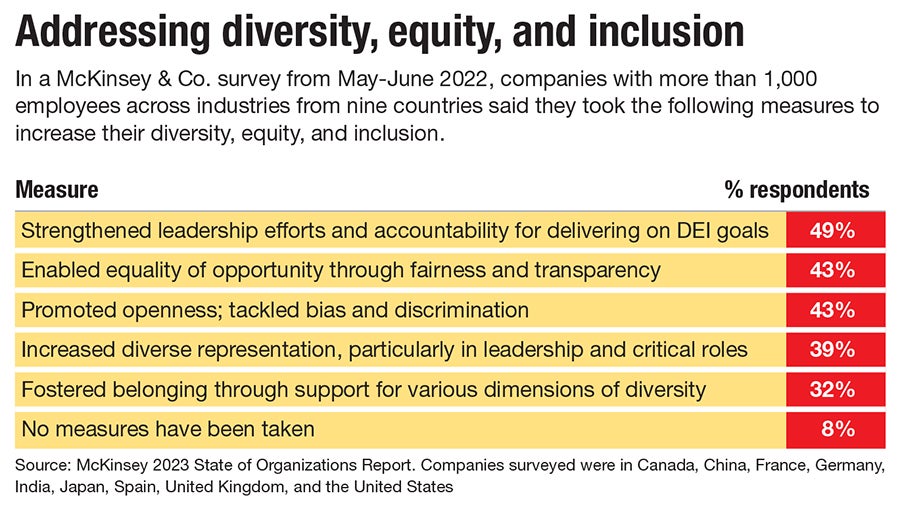
Letterman White was contracted by the City of Worcester following the 2022 resignation of the City’s chief diversity officer, Stephanie Williams, who in her resignation letter said she wasn’t adequately supported in making change. Rather than seeking to hire a new CDO immediately, City Manager Eric Batista had Letterman White conduct an investigation into ways the City could improve DEI support.
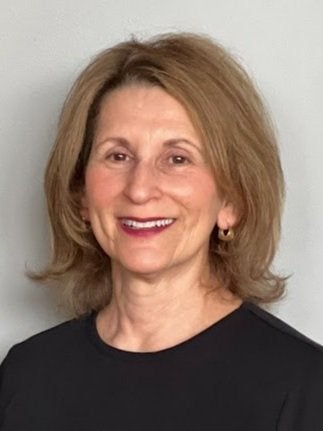
That study from Letterman White led to Batista seeking in February to create an Executive Office of Diversity, Equity, and Inclusion in the City’s structure, which will be led by Williams’ eventual replacement.
“This is a C-suite type role. The person in the role has to have the ability to impact those structures,” said Letterman White.
"They were getting tired."
Kennedy Community Health has taken a similar approach. “It was important to us to not ask [Maruska] to come in without having done the baseline work ourselves,” said Stephen Kerrigan, president and CEO of the community healthcare provider. “A lot of organizations are well intentioned, but don't realize they aren't ready to bring this person in.”
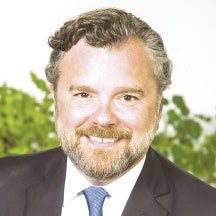
To prepare, Kennedy spent resources defining its mission internally and externally, participating in equity training, and implementing staff-led committees to reveal pain points in pursuit of preventing barriers to growth and communication.
“We had critical work to do,” said Kerrigan.
Burnout among staff members working to make internal changes has been an issue in the corporate and nonprofit world since 2020, too. Leadership at Kennedy is hopeful Maruska’s presence is reigniting the desire to dive into equity work across career-levels and work areas for staff.
The hard work to lay the foundation was done in large part by working groups and committees. “To be honest, they were getting tired,” said Kerrigan.
The work of tackling organizational equity structures is taxing, and is an additional responsibility unrelated to typical staff job functions. The work was starting to wear the team down, he said, but initiatives now led by Maruska are resetting the score.
“They have been reinvigorated. They have [Maruska] to help them carry the load now,” said Kerrigan.
Maruska previously ran her own DEI consulting firm, Sedruola Maruska Consulting & Coaching, and produces the Diversity Dish podcast, focused on having equity, inclusion, social justice, and diversity conversations.
At a community health center, the implications of well-implemented diversity, equity, and inclusion work go beyond the confines of the staff at the organization; they impact the patient populations.
Healthy equity is the basis of health centers, said Kerrigan. They exist to provide care to vulnerable, marginalized populations. In March, Kennedy Community Health opened its 11th location and reached a milestone of 31,000 individuals receiving care annually across Central Massachusetts and MetroWest, regardless of their ability to pay.
Everything trickles down to impact the patients who come seeking healthcare, said Maruska.
“Nothing we do internally does not impact our population,” she said.
Three steps toward DEI success
Without doing the internal work before bringing in a new executive in the hopes that person will change company culture is a recipe for failure, both for the organization and the individual hired, said Letterman White.
“So many organizations don't give it that thought. It means the entire initiative is stuck in a box on a shelf, and is not what it needs to be,” she said.
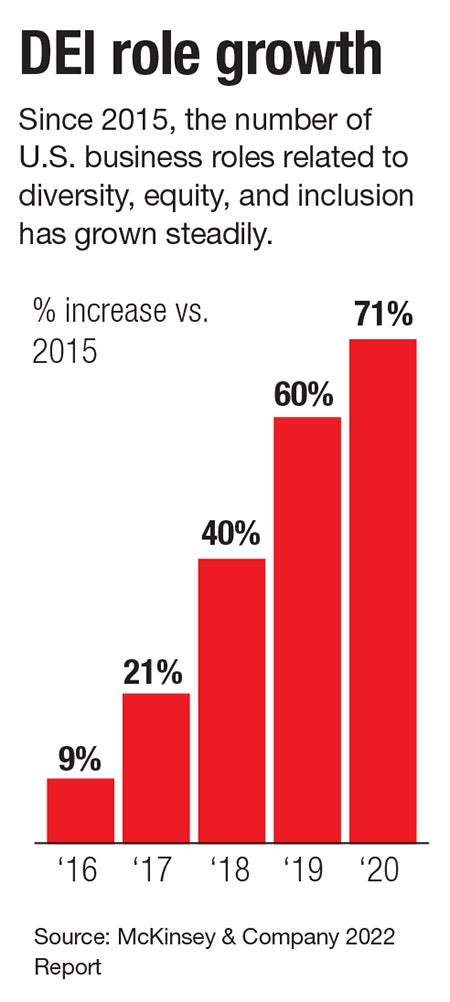
It takes a three-pronged approach to effectively set up a DEI executive for success, she said.
First, the executive needs to be invested in, with a line item in the budget to allow for initiatives.
“You can't give somebody the responsibility and no resources,” she said.
Second, organizations need to establish their own priorities and know what they are asking new hires to do, said Letterman White. The organization needs to acknowledge changes to its innate structure may be required.
Thirdly, she said, the executive leader of the company or organization needs to model and prioritize DEI work even after a director is brought on.
“This has to be from the top. It has to be leader-led, and they have to support it 100%,” Letterman White said.
Ensuring the resources are available for a DEI executive to know the ins and outs of the inside and outside of an organization is paramount, she said.
“Their job is to understand internal and external dynamics. It’s a lot. They need the support and budget to succeed, she said.
Eight months in at Kennedy Community Health, Maruska said she is reaping the benefits of being bolstered by those types of supports. She has spent the months working to gain that holistic understanding, she said. Now, equity and inclusion is the main area of focus for Maruska. To elevate the center’s already diverse staff, 74% of whom are bi- or trilingual, ensuring equity is a top priority.
“For organizations with a lot of diversity, the equity and inclusion aspect is a sticking point,” said Maruska.
